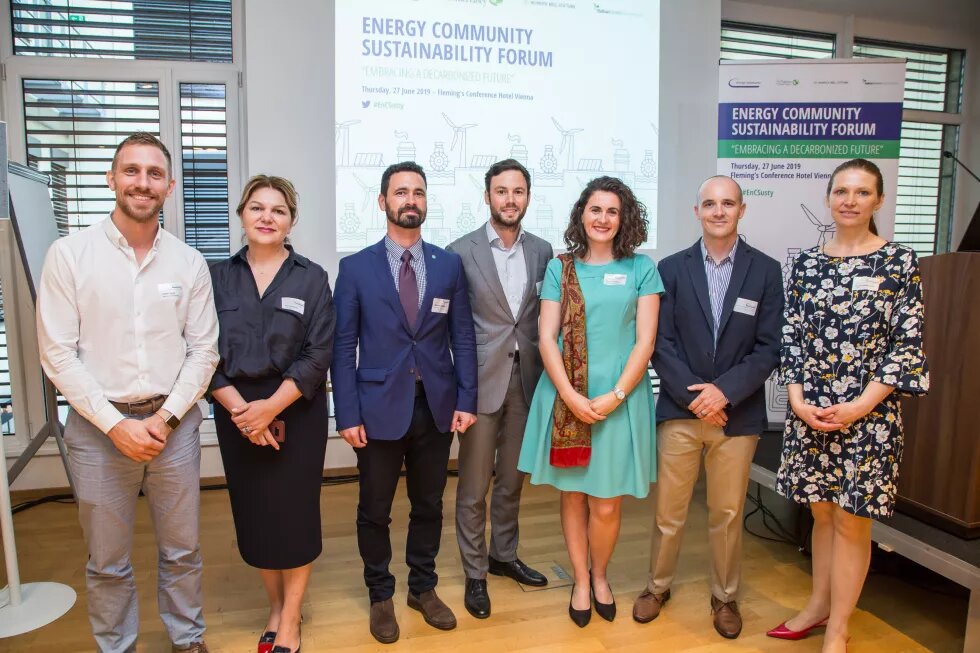The third Sustainability Forum took place under the auspices of the Energy Community in cooperation with Balkan Green Foundation, Heinrich Böll Foundation and The Nature Conservancy on 27 June 2019 in Vienna. The Forum gathered Ministers and Deputy Ministers responsible for energy, environment and climate change of the Energy Community Contracting Parties, high-level officials of the European Commission, EU Member States and Contracting Parties as well as representatives of academia, civil society and non-governmental organisations to discuss the best ways for the Energy Community to embrace a decarbonized energy future.

The Forum participants agreed that whilst the challenges to transitioning to lowcarbon energy sectors in the Energy Community were significant, they could be overcome with adequate legal and regulatory frameworks coupled with inclusive energy strategies putting the citizens at the centre. A broad and meaningful stakeholder engagement is a precondition for a societal consensus on the issue and a just transition to renewables. The participants encouraged the uptake of sustainable energy initiatives and innovative business models across the Energy Community ensuring that citizens and communities can actively participate in the energy system by contributing to local development, thus increasing the acceptance of renewables and self-sufficiency.
The Forum expressed concern regarding the delay in the establishment of a new 2030 Energy Community legislative framework to increase substantially the share of energy from renewable sources, especially wind and solar, improve energy efficiency and reduce greenhouse gas emission, in accordance with the Paris Agreement. Participants welcomed the preparatory work on establishing National Energy and Climate Plans, but called for the Governance Regulation to become binding for the Energy Community Contracting Parties as soon as possible. Simultaneously, they also stressed the need to go beyond the creation of legislative frameworks and ensuring adequate enforcement.
The participants underlined that with ever more stringent emission rules, the profitability of coal-fired power plants is being increasingly questioned. Welcoming the Energy Community Secretariat’s recent study on direct and certain types of indirect subsidies to the coal sector, they called for the adoption of strategies on phasing out subsidies to electricity generation from coal.
The Forum participants recognized that foreign investors should be prepared to invest in the region‘s untapped potential for renewables and energy efficiency and that, in coming years, the number of low-carbon projects backed by Asian banks and firms will be on the rise in the Energy Community region. Nevertheless, there is a clear need to raise awareness about the Energy Community acquis and ensure that sufficient due diligence is carried out by investors before energy projects are financed.
The participants acknowledged that the contribution of small hydropower plants to energy production in the Energy Community is extremely limited, while their impacts on the environment are disproportionately high. The environment frequently falls victim to poor implementation of the rules on environmental assessment, with cumulative and transboundary impacts often not assessed at all. Therefore, the development of greenfield projects should be scrutinised, while full and proper implementation of Energy Community legislation on environmental assessments (at project, river basin and regional level) is a prerequisite to any project.

